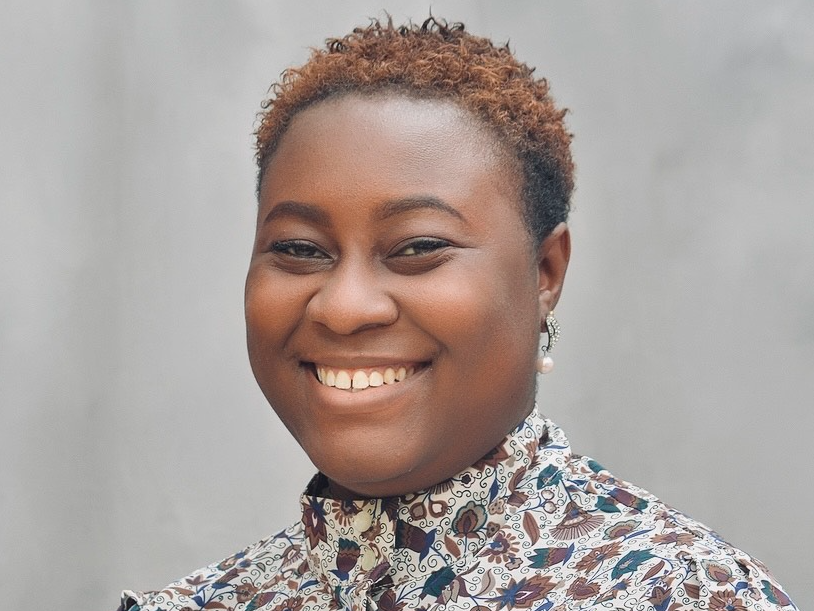After years of envisaging herself in a white lab coat, Oray Okechukwu’s foray into psychology seemed accidental—inspired by a textbook she read during her A-levels.
She encountered word “autism,” which quietly took root in her mind. Years later, she would credit her inspiration to that singular experience.
Born and raised in the oil-rich city of Port Harcourt, Oray had her earliest exposure to education through her mother, a school administrator.
In the wake of a teacher’s abrupt departure, Oray stepped in briefly to supervise the classroom that included children with autism and cerebral palsy. Along the way, watching the children achieve milestones that others had given up on reframed her idea of learning.
“Every child can learn,” she says, “if we’re willing to meet them where they are.”
Upon moving to Lagos, she became a certified behavioural therapist and earned her credentials as a Qualified Autism Services Practitioner Supervisor (QASP-S) under the QABA Credentialing Board.
Although she cannot name a single moment that led her to focus on autism, Oray attributes her enduring passion to its complexity and prevalence: out of 362,437 children born in the world, 1 in 100 children has autism.
Living with ADHD herself, she brings a deeply personal perspective to her work, carrying a lived understanding of what it means to be neurodivergent in a society that is still catching up.
This planted the seed for what eventually became The Orchid Foundation. The idea first took root in 2017, born from her mounting concern over a persistent problem: families of children with special needs were struggling to afford therapy.
Immersed in her work with children, Oray witnessed the emotional and financial strain parents faced when trying to secure the professional support their children needed. The cost of therapy wasn’t just a burden; it was a barrier.
For many children, this meant delayed diagnoses, inconsistent interventions, and a widening gap in developmental progress.
Recognizing the urgency of the issue, she knew that any foundation reliant on outreach programs and services needed a sustainable source of funding to remain viable.
“I realized that if we were going to run a foundation dependent on donations, we couldn’t afford to sit and wait,” she says.
To ensure the foundation’s sustainability, she established The Orchid Haven, a for-profit therapy centre designed to generate consistent income.
Officially registered in 2021, The Orchid Haven became the business arm of the vision, offering specialised therapy services (particularly in applied behaviour analysis) and allocating a quota of its monthly revenue to support its parent organisation.
However, Oray soon realized that therapy funding alone wasn’t the solution. Reflecting on her experiences, she recalls a pivotal moment during her time volunteering at a centre where a child, previously on sponsorship, disappeared after the funding stopped.
“It made me realize that therapy funding isn’t enough,” she explains. “What’s needed is a way to empower families to support their children, even when therapy isn’t an option.”
She believes that while parents may not be autism experts, there are practical steps they can take at home to support their children, thus creating a sustainable support system that extends beyond just professional care.
This realization drove the foundation’s focus on equipping families with the knowledge and tools to better support their children, regardless of their financial situation.
“The truth is, they may not be experts, but there are basic things that they can do to support their children because not everybody can afford therapy. Some people pay as high as 500 to $750 every month for therapy.”
Oray emphasizes additional challenges, such as public support and limited access to quality education, that continue to plague low-income households.
“For many families, the immediate goal is simply to ensure their child is fed, safe, and cared for, even if it means locking them indoors while they go out,” she says.
Yet even high-income families can find themselves in situations where they can no longer afford therapy due to unforeseen circumstances.
To address this, Oray encourages parents to actively participate in their children’s therapy, familiarize themselves with the processes, and even train caregivers to ensure continuous support at home, thus helping to build a stronger foundation for their children’s development.
In recent years, the Foundation’s focus has become more intentional in the area of inclusive education. Oray and her team have observed that while some schools show a willingness to accept children with special needs, few are adequately equipped to educate them.
“Inclusion isn’t just about opening the gates; it’s about what happens inside the classroom,” she says.
Through workshops and consultations, the Foundation works directly with schools, training teachers on differentiated learning strategies, assessments, and accommodations.
For Oray, inclusion must go beyond the symbolic. It must be embedded in teaching methods, classroom design, and even how success is measured.
“We are advocating for schools to move beyond simply permitting external facilitators. That’s not inclusion; that’s outsourcing responsibility.”
Running both initiatives has not come without its challenges. Beyond the predictable difficulty of securing funding, Oray says building a consistent and dedicated volunteer base has taken time.
“We’d build a team, then disband it. Build again, disband again,” she says. Last year, however, she curated a group of fifteen proactive volunteers.
This April marked a pivotal shift for autism advocacy: from awareness to acceptance. Oray passionately reflects on this transition, saying, “Awareness is knowing autism exists, maybe recognizing a neighbour’s child with it. But acceptance? Acceptance is embracing these individuals, reshaping your world to make room for them.”
For Oray, true acceptance means more than just giving someone a seat at the table; it’s about ensuring that they have a voice in the conversation, participating fully, thriving fully.
Schools, in particular, often miss the mark, offering awareness without committing to the more challenging work of full integration.
“Inclusion is easy,” she points out, “but acceptance is the hard work. It’s not just about showing up; it’s about ensuring that everyone, no matter their ability, has the opportunity to learn, grow, and shine together in the same classroom.”
This shift in focus towards acceptance rather than mere awareness challenges us to imagine a world where the spaces we occupy are not just inclusive in name but truly transformed by the presence and participation of all individuals, regardless of their differences.
“It took a few people to show grace. Show grace because number one, the parents don’t have it easy. The siblings don’t have it easy either.“
In any line of work, especially in therapy, there are inevitable moments of downtime. For Oray, one of the most challenging aspects is when progress is slow, or even non-existent, despite months of hard work expended on a child.
Like many in her field, she confronts moments of doubt, especially when progress stalls. During these times, reaching out for support from supervisors and colleagues is crucial, even though it doesn’t always feel easy.
The situation becomes even more disheartening when the parents of the child begin to lose patience, expressing that they no longer see improvement and considering switching therapists after just a few months.
It becomes more frustrating when the parents don’t see the long-term value in sticking with the process.
Her desire is always to reassure the parents, asking them to trust the process a little longer, but unfortunately, the pace of progress is something beyond her control. It can feel like a personal failure when a parent decides to withdraw their child from therapy prematurely, especially when she knows that success could just be around the corner if given more time.
Oray believes that leading a foundation comes with its own unique set of challenges, but it also offers opportunities for personal growth and self-discovery.
Managing a non-profit means balancing multiple responsibilities, from overseeing therapy sessions to fundraising, advocacy, and creating community awareness.
There are moments when she realizes the importance of staying organized and focused, despite personal struggles with Attention Deficit Hyperactivity Disorder and procrastination.
Running the organization has taught her discipline, helping her stay on top of her tasks with the use of to-do lists and setting daily goals.
Speaking of ADHD, she openly shares her experiences with this condition, providing insight into how it affects her daily life.1 in 4 adults suspect they have undiagnosed ADHD.
ADHD involves struggles with attention, impulsivity, and hyperactivity. For Oray, it often manifests as racing thoughts, difficulty staying focused, and a constant need for physical movement.
Despite the challenges, ADHD has also provided her with strengths like creativity and energy, which she channels into her work. Understanding ADHD has been crucial in her own journey, helping her to navigate both her personal life and professional responsibilities more effectively.
She emphasizes that autism is not a spiritual issue, nor is it caused by bad parenting. Many people wrongly believe that autism is contagious or that all individuals on the spectrum are geniuses.
Oray clarifies that autism is not a disease but a lifelong condition, and not every individual with autism exhibits extraordinary abilities.
She also challenges the idea that autism can be outgrown, asserting that it is a lifelong condition. Instead of focusing on finding a cure, she advocates for providing individuals with autism the tools and support they need.
Through her work, Oray aims to raise awareness, encourage acceptance, and ensure that people on the spectrum receive the necessary support to overcome challenges. Her advocacy is a vital step toward creating a more inclusive and understanding society for individuals with autism.
Oray Okechukwu, originally aiming for a medical career, discovered a passion for working with children with autism and other special needs while temporarily teaching at her mother's school. Her journey led to becoming a certified behavioral therapist focused on autism, inspired by her own experience with ADHD. To address the financial burdens families face in securing therapy for their children, she founded The Orchid Foundation. This initiative was supported by The Orchid Haven, a for-profit therapy center, which provides sustainable funding for the foundation.
Oray realized that supporting families extends beyond therapy funding. Her approach emphasizes empowering parents with the skills to support their children at home, highlighting that therapy can be financially out of reach for many. Her foundation also focuses on inclusive education, training schools to effectively integrate children with special needs into their classrooms. Oray's advocacy has shifted from just raising autism awareness to promoting acceptance, emphasizing the need for society to truly engage with and include individuals on the spectrum.
Despite challenges such as securing funding and maintaining volunteer support, Oray’s work continues to highlight the importance of acceptance and inclusion over mere awareness. She advocates for education and support that is practical and constant, helping families understand that progress in therapy is a gradual process that requires perseverance. Through her efforts, Oray aims to dispel myths surrounding autism and ensure that both individuals and their families receive the necessary support to thrive.






